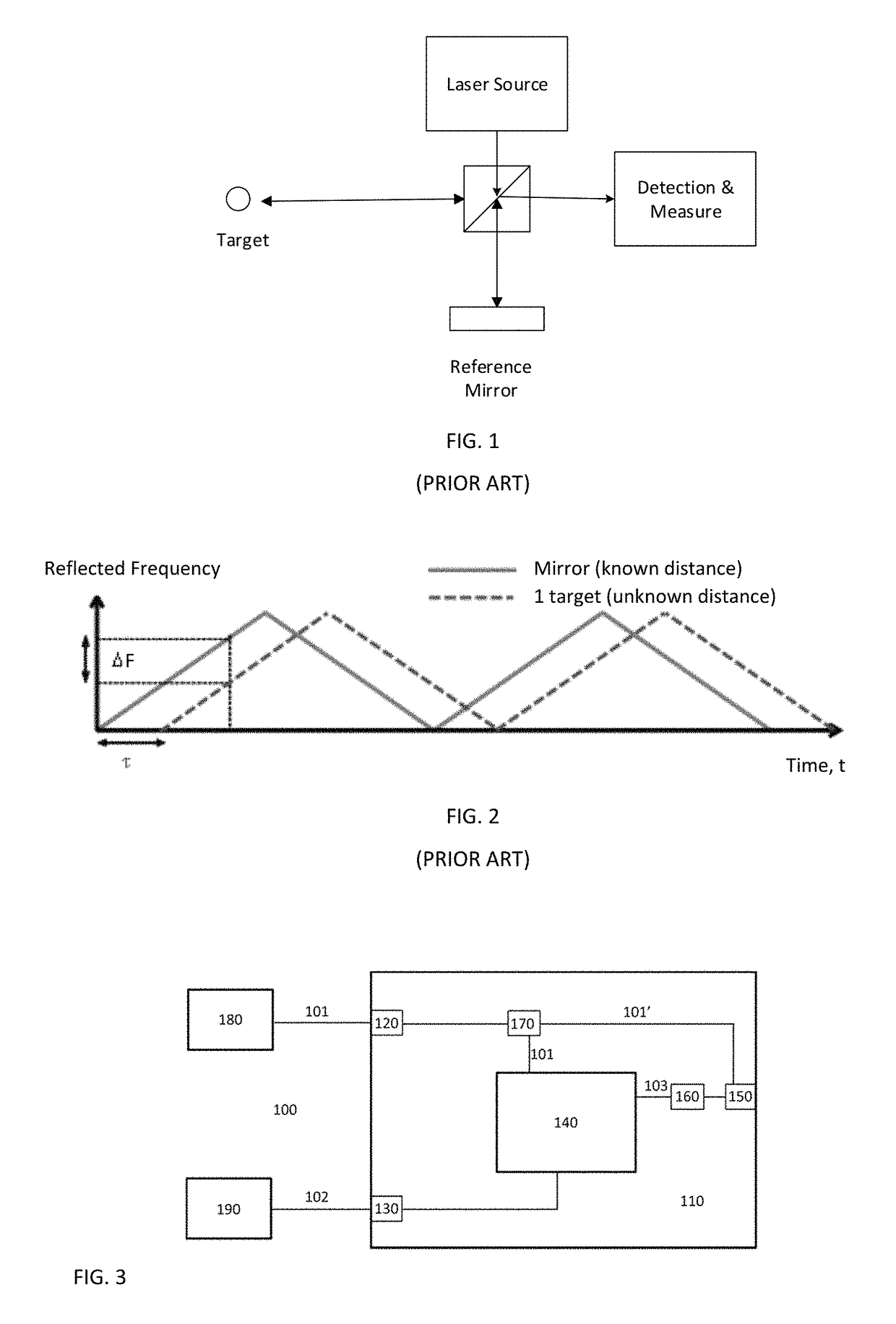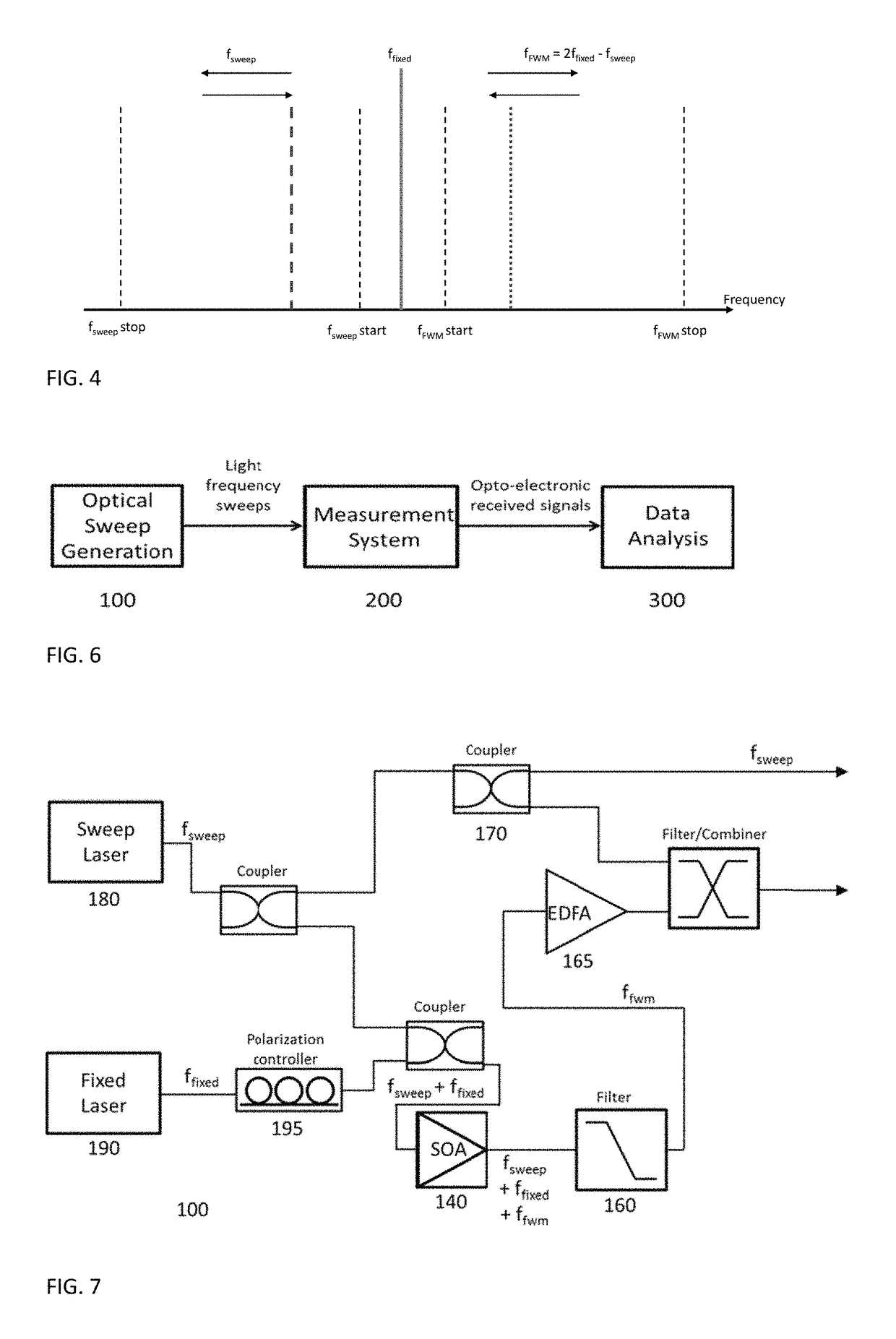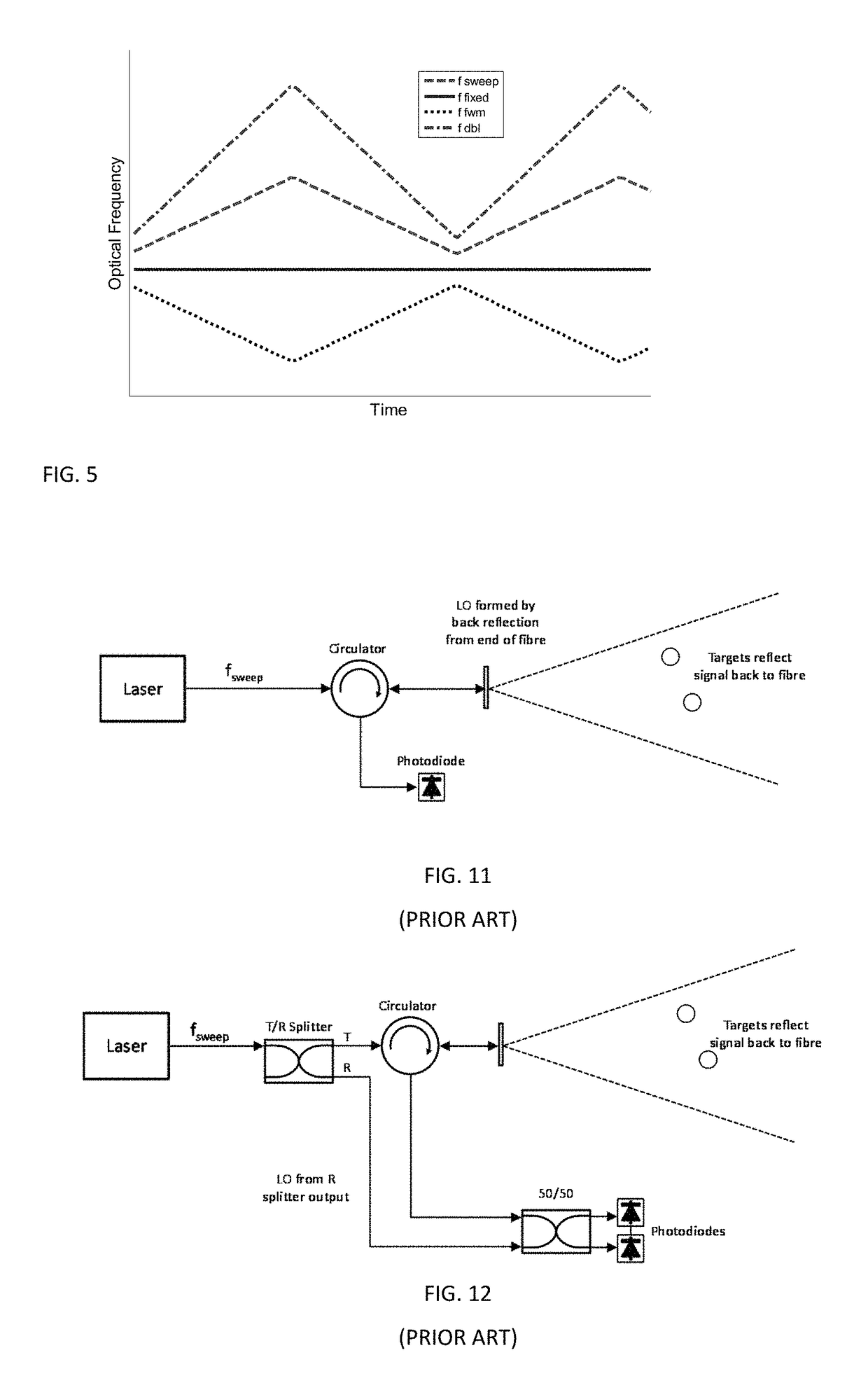Dual laser frequency sweep interferometry system and method
a laser frequency sweep and interferometer technology, applied in the direction of measurement devices, instruments, structural/machine measurement, etc., can solve the problems of large disturbance of signals, large doppler shift, and large increase of distance measurement uncertainty, so as to improve signal integrity, improve snr, and increase operating range
- Summary
- Abstract
- Description
- Claims
- Application Information
AI Technical Summary
Benefits of technology
Problems solved by technology
Method used
Image
Examples
Embodiment Construction
[0135]FIG. 3 is a schematic diagram of sweep generation system 100 including an optical arrangement according to and embodiment of the present invention.
[0136]The sweep generation system 100 includes an optical arrangement 110 having a first input 120, a second input 130, a non-linear optical artefact 140 and an output 150.
[0137]The first input 120 is arranged to receive a first beam 101 from a frequency swept laser 180. The second input 130 is arranged to receive a second beam 102 from a fixed frequency pump laser source 190. The optical frequency separation of the first 101 and second 102 beams are satisfy the coherence length condition of non-linear optical artefact 140.
[0138]The non-linear optical artefact 140 is arranged to receive, and to intermodulate by four wave mixing, the first 101 and second 102 beams to generate a third beam 103, the third beam 103 being an inverted copy of the first beam 101 mirrored relative to the fixed frequency of the pump laser source 190.
[0139]Th...
PUM
| Property | Measurement | Unit |
|---|---|---|
| reflectance | aaaaa | aaaaa |
| wavelengths | aaaaa | aaaaa |
| refractive index | aaaaa | aaaaa |
Abstract
Description
Claims
Application Information
 Login to View More
Login to View More - R&D
- Intellectual Property
- Life Sciences
- Materials
- Tech Scout
- Unparalleled Data Quality
- Higher Quality Content
- 60% Fewer Hallucinations
Browse by: Latest US Patents, China's latest patents, Technical Efficacy Thesaurus, Application Domain, Technology Topic, Popular Technical Reports.
© 2025 PatSnap. All rights reserved.Legal|Privacy policy|Modern Slavery Act Transparency Statement|Sitemap|About US| Contact US: help@patsnap.com



